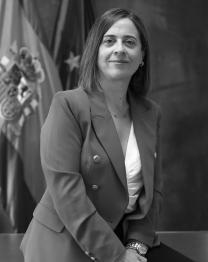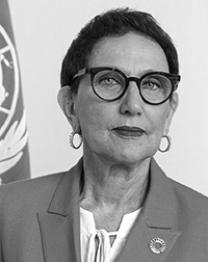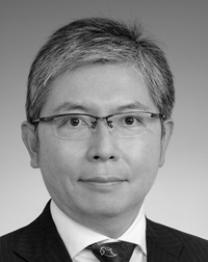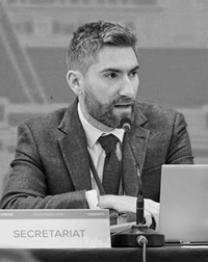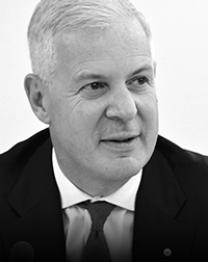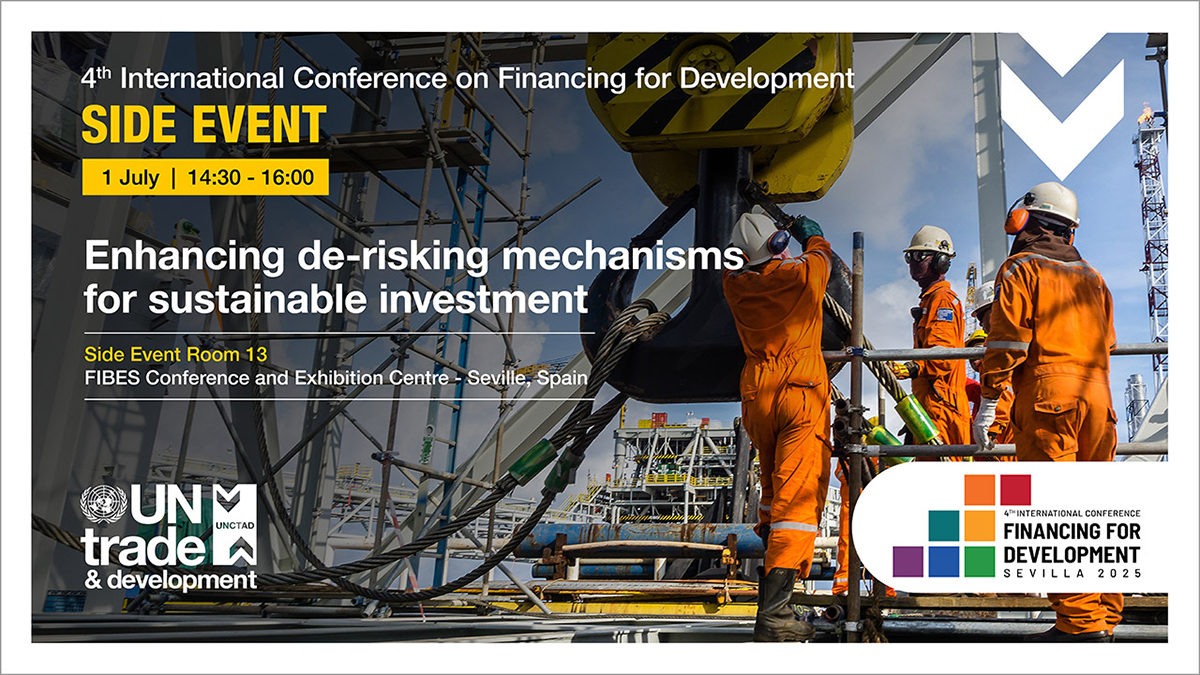
The investment gap to achieve the Sustainable Development Goals (SDGs) in developing countries by 2030 has widened from $2.5 trillion to approximately $4 trillion per year between 2014 and 2023. This chasm underscores the urgent need to leverage all sources of funding, including foreign direct investment (FDI). However, private investment in developing economies, and in least developed countries (LDCs) in particular, is constrained by heightened real and perceived risks.
Moreover, climate change, geopolitical tensions, and supply chain disruptions significantly amplify investment risks, particularly in structurally weak and vulnerable countries. Robust de-risking strategies are needed to unlock private investment and bridge the financing gap to achieve the SDGs. De-risking instruments, such as political risk insurance (PRI) and credit guarantees, play a critical—and potentially growing—role in fostering investment in developing countries, particularly in LDCs. However, the application of these instruments remains uneven, with certain industries and geographies receiving disproportionately lower coverage. There is an urgent need to scale and adapt these tools and to foster partnerships between institutions to more effectively support investment in the SDGs.
Building on recent research by UN Trade and Development, this event will feature two focused panel discussions. The first will focus on the role of ECAs in supporting SDG-aligned investment from private sector financiers, through guarantees, including PRI and credit guarantees. It will explore innovative solutions to expand the use and accessibility of these instruments—particularly in underrepresented sectors and LDCs. The discussion will highlight how ECAs can strengthen their impact by partnering with multilateral institutions, DFIs, national development banks, and private insurers. Emphasis will be placed on collaborative structures, co-guarantees and blended solutions that can enhance the scale, effectiveness, and reach of these instruments to better serve sustainable development outcomes.
The second panel will take a high-level view at how multilateral development banks, development finance institutions (DFIs), export credit agencies (ECAs), national development banks, as well as home and host countries can collaborate to strengthen investment de-risking for the achievement of the 2030 Agenda.
Functions
The representative of the Secretary of State for Trade is the senior official responsible for Spanish trade policy. Its functions include: defining the Strategy for the Internationalisation of the Spanish Economy; participating in and monitoring the design and application of the European Union's trade and investment policy as well as defending Spain's trade interests before international organisations; promoting exports and attracting investment through its instruments, such as ICEX España Exportación e Inversiones; and promoting and maintaining bilateral economic and trade relations with third countries. Its work includes: the development of economic intelligence based on its foreign network of economic and trade offices as well as its internal network of territorial and provincial directorate;, boosting the competitiveness of Spanish companies; supporting SMEs in their internationalisation process; and coordinating with the autonomous communities and economic and social agents to strengthen the positioning of the Spanish economy.
Academic background
- Law degree, specialising in Community Law, San Pablo CEU University, Madrid, 1998.
- Civil servant in the Corps of State Lawyers in November 2005.
Professional experience
- Appointed Secretary of State for Trade at the Ministry of the Economy, Trade and Business by RD 491/2024 of 14 May. She is also President of ICEX España Exportación e Inversiones, a public business entity integrated into the structure of the Ministry of Economy, Trade and Business, under the Secretary of State for Trade.
- Undersecretary of Economy, Trade and Business from December 2023 to May 2024. Undersecretary of Economy and Business from June 2018 to January 2020 and Undersecretary of Economic Affairs and Digital Transformation from January 2020 to December 2023. She has also held the positions of member of the Board of Directors of SEPI, member of the Governing Committee of the FROB and member of the Consortium of the City of Toledo from June 2018 to date.
- Legal advisor to the Ministry of Justice for the Working Group for the reform of the European Regulation on Insolvency Proceedings (2012-2013). Head of the Spanish Delegation of UNCITRAL Group V, Insolvency Law from April 2014 to June 2018 and rapporteur of the 53rd session. Legal Advisor appointed by the Ministry of Justice to the Working Group for the Proposal for a Directive on Restructuring and Second Chance, since January 2017.
- State Lawyer coordinating the legal assistance agreements with Consorcio Ciberesp, with Portel Servicios Telemáticos S.A., with the Instituto de Crédito Oficial (ICO), and with the Sociedad Estatal de Infraestructuras del Transporte Terrestre (SEITTSA).
- State Lawyer, Head of the Insolvency Department in the Subdirectorate General of the Contentious Services of the State Attorney's Office, from September 2013 to June 2018.
- Deputy Chief State Attorney, Coordinator of Insolvency Matters, Legal Service of the State Tax Administration Agency, Central Services, from November 2010 to July 2013.
- State Attorney before the Central Contentious-Administrative Courts between January and November 2010.
- State Attorney at the Barcelona State Attorney's Office before the High Court of Justice of Cataluña, between November 2005 and January 2010, where she worked as coordinator of the Contentious-Administrative Courts and Criminal Courts.

Al-Mashat enjoys more than 20 years of international experience in central banking, financial systems, monetary policy frameworks, international cooperation policies and strategies, sustainable development, and climate finance. She is a co-founder and member of several advisory boards, international alliances, and associations. She pushes forward partnerships and multilateralism as key enablers to accelerate sustainable development, climate action, and gender equality. Managing the country’s partnerships with numerous bilateral and multilateral development institutions, she ensures the alignment and synergy of development finance and activities across different economic sectors. Al-Mashat developed Egypt’s Country Platform for the Nexus of Water, Food, and Energy «NWFE» نُوَف ي , to leverage Egypt’s international partnerships and mobilize climate finance to accelerate the green transition. Her previous roles at the IMF, working with governments in the Middle East & Central Asia, Africa, and Asia, expanded her expertise in development systems and structural reforms in developing and emerging economies. Moreover, she has several publications on monetary policy, financial stability, and institutional reforms.
H.E Dr. Rania A. Al-Mashat has been part of Egypt’s cabinet of ministers since 2018, where she currently serves as the Minister of Planning, Economic Development & International Cooperation, and has previously served as the Minister of International Cooperation (Dec 2019 - July 2024), and also as the first female Minister of Tourism (Jan 2018 - Dec 2019). She worked at the International Monetary Fund (IMF) in Washington, D.C. as Advisor to the Chief Economist (Aug 2016 - Jan 2018), and Senior Economist (2001 - 2005). She also served at the Central Bank of Egypt (CBE), as the Sub-Governor for Monetary Policy (Aug. 2005 - Jun. 2016), where she contributed to modernizing the CBE’s monetary policy strategy, underpinned by structural reforms to formally adopt an inflation-targeting regime, a key pillar of the banking sector reform program launched in 2004. Furthermore, she participated in the country’s macroeconomic management through the design and update of the macroeconomic framework in conjunction with other ministries and government entities and was the CBE’s liaison with the IMF and the Sovereign Rating Agencies.
Al-Mashat served on several boards, including the Egyptian Stock Exchange, the Egyptian General Authority for Free Zones and Investment, the Arab International Bank, and the Arab Investment Bank. In her capacity as Minister of Planning, Economic Development and International Cooperation, she represents Egypt as Governor in several international financial institutions, including the World Bank Group, European Bank for Reconstruction and Development, Arab Fund for Economic and Social Development, Arab Bank for Economic Development in Africa, Islamic Development Bank, and New Development Bank as Egypt joined as a new member in 2023; and as Alternate Governor of Egypt at the African Development Bank, Asian Infrastructure Investment Bank and the International Fund for Agricultural Development.
Moreover, Al-Mashat is a member of several Advisory councils and international alliances including, the United Nations International Children's Emergency Fund (UNICEF) GenU, a Founding Member of the Global Energy Alliance for People and Planet (GEAPP) launched by the Rockefeller Foundation, Founding Member of the Resilience Consortium of the World Economic Forum (WEF), Member of Mission Possible for Climate Action (WEF), Co-Chair of the MENA Stewardship Board (WEF), Member of the New Economy and Society Stewardship Board (WEF), Advisory Member of the Centre for the New Economy and Society (WEF), Member of the Giving to Amplify Earth Action (GAEA) initiative (WEF) and the Co-chair of the Network to Mobilize Investment for Clean Energy in the Global South (WEF). She is also a member of several research centers and think tanks, serving as a member of Bruegel’s Scientific Council, Board member of the Dean's Strategic Advisory Board at the School of Business (AUC), Board Member of the Middle East Economic Association (MEEA), Founding Member of Egypt Network for Integrated Development (ENID), Research Fellow at the Economic Research Forum for Arab countries, Iran and Turkey, and member of the Middle East Economic Association.
In June 2021, Al-Mashat launched a book titled “Stakeholder Engagement Through Economic Diplomacy” for London School of Economics. Additionally, she contributed several chapters to the International Monetary Fund’s book, titled, “Advancing the Frontiers of Monetary Policy”, published in 2018 and edited by Maurice Obstfeld, the Chief Economist at the time. Moreover, she pioneered an international inclusive and consultative process to translate climate pledges into implementable projects in developing countries and transition economies, producing the “Sharm El-Sheikh Guidebook for Just Financing”, which presents an actionable agenda for all relevant stakeholders, listing their roles in achieving just financing outcomes, and maximizing the effectiveness and efficiency of existing climate finance architecture.
Al-Mashat received several international and domestic awards; the 2022 Most Visionary and Outstanding Minister of International Cooperation in Africa” by the Elliott School of International Affairs George Washington University and the GE7 Initiative; the “2019 Global Champion Award” from the World Tourism and Travel Council for launching the Egypt—Tourism Reform Program that has created resilience to the sector; the “2019 Global Leader’s Award for Outstanding Contribution to the Industry” as Egypt’s tourism revenues recorded a new historical high and the “2019 United Nations World Tourism Organization Destination Marketing Award”, for best promotion video for a destination. In 2015 and 2020, she was selected as one of the top 50 most influential women in the Egyptian economy, for the “Choiseul Institute 100 Africa: Economic Leaders for Tomorrow” award in 2014 & 2015, for the 2014 Young Global Leaders (YGL) by the World Economic Forum (WEF), and she was also selected among the 2014 top 10 most powerful women in the Egyptian Banking Sector in the survey conducted by the Bassera Center and selected by the Government of France’s 2013 International Visitor Leadership Program. Furthermore, she received the 2013 Distinguished Alumni Award from the School of Business at the American University in Cairo and received the 2004 Ibn Khaldoun prize for the best paper on one or more Middle Eastern countries given by the Middle East Economic Association, titled “Monetary Policy and Public Debt Management: An Empirical Assessment of the Egyptian Experience”.
Al-Mashat received her PhD and MA in Economics from the University of Maryland, College Park, USA, and BA in Economics from the American University in Cairo. She completed Executive Education certificates in Leadership and Public Policy from the Kennedy School of Government at Harvard University and Transformational Leadership from Said Business School at Oxford University.
Rebeca Grynspan, of Costa Rica, became UNCTAD's eighth Secretary-General on 13 September 2021 and is the first woman to lead the organization.
Prior to her UNCTAD appointment, she was the Ibero-American secretary-general from 2014 to 2021, also the first woman to head the organization. During her mandate, she has coordinated the 22-member Iberoamerican Conference and led four key summits of Heads of State and Government.
In 2010 she was appointed Under-Secretary-General of the United Nations and Associate Administrator of the United Nations Development Program (UNDP) and prior to that was UNDP Regional Director for Latin America and the Caribbean.
Prior to joining the United Nations, Ms. Grynspan served as Vice-President of Costa Rica from 1994 to 1998. She was also Minister of Housing, Minister Coordinator of Economic and Social Affairs, and Deputy Minister of Finance. In 2021 she was named Special International Advisor to the newly created Economic and Social Council of Argentina and invited to join as member of the G20 High-Level Independent Panel on Financing the Global Commons for Pandemic Preparedness and Response.
In addition to her experience as a lecturer and advisor to several international organizations, she has been actively involved in key United Nations initiatives, such as the Millennium Project's Task Force on Poverty and Economic Development and the High-level Panel on Financing for Development.
In 2014 and 2015, she was recognized as one of the 50 leading intellectuals of Latin America. And she was recognized as one of the 100 most powerful women in Central America by Forbes magazine.
Ms Grynspan holds a degree in Economics by the University of Costa Rica and a MSc in Economics by the University of Sussex. She has been awarded a Doctorate Honoris Causa by the University of Salamanca, the University of Extremadura and the European University of Madrid in recognition of her outstanding professional achievements.
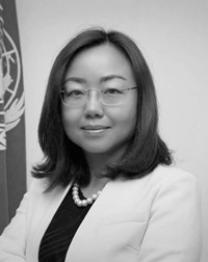
Nan has over 25 years’ experience in strategic management roles both with the United Nations and the private sector across Asia, Africa, North America and Europe. She currently leads a global team in investment and sustainable finance research, policy, investment promotion and facilitation, enterprise development, and technical assistance to governments in over 160 countries. She chairs the Governing Board of the UN Sustainable Stock Exchanges Initiative, leads the World Investment Forum and the inter-governmental Working Group on International Standards of Accounting and Reporting.
Before joining UNCTAD, she served as the Global Director of Sustainable Investments and Innovation at UNOPS, where she led a team to promote infrastructure investments in many developing countries and co-invest with DFIs and private investors. She served as UNOPS focal point in the UN Inter-agency Task Force on Financing for Development.
Previously, she served as the Head of UNDP SDG Innovative Finance and as Head of South-South Cooperation and Investment at UNDP's Asia Pacific Center in Bangkok. She led a team to engage public and private investors and developed national policy dialogues and networks on SDG investment, piloted SDG-aligned funds, bonds and projects in multiple countries. She helped to position UNDP as a pioneer in the UN on sustainable investment and innovative finance. She also held positions as Policy Specialist in Capacity Development and Public-Private Partnerships in New York and Johannesburg since 2009, overseeing a regional portfolio in Eastern and Southern Africa.
Before joining UNDP, she spent about 10 years in the private sector in China and the USA, covering market entry and investment strategy, merger and acquisition, business development and sustainability. She holds a master’s degree in business administration from Hong Kong University of Science and Technology, and participated in the Executive Leadership program at IESE, and Finance Executive program at Tsinghua University.
After seven years of experiences in corporate and project financing at MUFG, he joined NEXI in 2003. Since then, he has led underwriting teams in the infrastructure, transportation, manufacturing, power, and mining sectors. His experience spans sovereign, corporate, and project finance loan insurance, as well as political risk insurance for equity and subordinated debt.
He led the corporate planning division, overseeing strategic policy and the agency’s mid-term and annual plans. He also developed a risk premium system for new products.
While seconded to the Cabinet Secretariat of the Government of Japan, he coordinated overseas infrastructure business promotion. He helped develop untied loan policy guidelines under the LEAD initiative and enhanced loan insurance incentives for green innovation.
He was NEXI’s chief negotiator of the OECD Arrangement on Officially Supported Export Credits, and organised multilateral meetings hosted by NEXI, including the BU RCG CEO Meeting (2020) and G7 ECAs CEO Meeting (2024). As a senior advisor, he oversees international and strategic policy issues. He served as Vice Chair of the ECA Committee (2022–2023) and is a member of the Management Committee.
He holds an MBA from the University of Manchester, an MSc in Development Finance from SOAS, University of London, and is currently a PhD candidate in Public Policy at the National Graduate Institute for Policy Studies (GRIPS) in Tokyo.
Prof. Andreas Klasen is Director at the lill Institute for Public Value and a Partner at lill Advisory. In addition, he is Honorary Research Associate at the University of Oxford, Honorary Visiting Professor at Bayes Business School, City St George's, University of London, and Visiting Professor at the University of St. Gallen. Before, he served as full Professor of International Business at Brunel University of London and Offenburg. Prior to his academic career, he was a Partner at PricewaterhouseCoopers in Germany, where he served as PwC’s Economics & Policy Leader, and as Co-Head and Managing Director of Germany’s official export credit agency. Furthermore, his career includes roles as Head of Guarantees and Export Finance at Airbus Group (ex EADS), and Vice President of the Berne Union.
Prof. Klasen advises governments, development banks, export-import banks, export credit agencies, and innovation funds on industrial and climate policy, innovation and export strategies, and financing instruments. Clients include the Asian Development Bank (ADB), the African Export-Import Bank (Afreximbank), the Australian Department of Foreign Affairs and Trade (DFAT), the Dutch Ministry of Finance, Etihad Credit Insurance in the United Arab Emirates, the European Commission, Export Development Canada (EDC), the Finnish Ministry of Economic Affairs and Employment, NEXI in Japan, the Swiss State Secretariat for Economic Affairs (SECO), the United Nations, and the World Bank Group.
His research focuses on public policy and export strategies, public management, as well as export, development and climate finance. He has made significant contributions to academic literature, with publications such as „The Handbook of Global Trade Policy“ and contributions to works including “The Elgar Encyclopedia of Public Management“. He regularly speaks at international conferences and fora such as COP, G7, G20, the EU, the OECD, UN conferences, and the WTO, was invited to give expert evidence to the UK Parliament and have long lasting experience as an economic adviser in WTO disputes.
Prof. Klasen's research and professional work has been featured, for instance, by the Financial Times, CNBC, Deutsche Welle, Forbes, Frankfurter Allgemeine Zeitung, Süddeutsche Zeitung, Die Zeit, and Impulse.
He was educated at Leibniz University Hannover, Northumbria University, the University of Wales, and the University of St Andrews, studying law, business, and theology and receiving his doctoral degree in finance.
Paul has over a decade of experience in strategic communications, external relations and stakeholder engagement within international finance.
He is currently leading the day to day operations of the Secretariat, and prior to this was head of communications, with responsibility for research and publications, outreach and external affairs, PR and media strategy.
Prior to joining the BU, Paul managed a portfolio of conferences on international finance and institutional investment at Informa, one of the world’s largest media, events and publications companies.
He holds an MA from King’s College London and a BA from Trinity College Dublin.
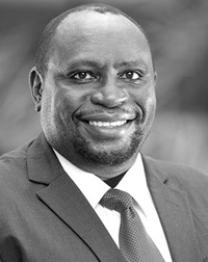
Benjamin was confirmed as the Chief Underwriting Officer in July 2020, after acting in the capacity for just over a year. Prior to this, he was a Senior Underwriter. Benjamin has been involved in underwriting transactions across several sectors such as energy, mining, telecommunications, manufacturing, and infrastructure for a wide range of clients including banks, investors, and contractors. Between 2013 and 2015, he was based in Uganda and was responsible for ATI’s field offices in Burundi, Rwanda, and Uganda.
Prior to joining ATI, Benjamin worked at the East African Development Bank. In his decade-long career at the Bank, he advanced to the position of Senior Project Officer working on various development projects.
Benjamin holds a Bachelor of Science Degree in Civil Engineering a Master of Science Degree in Construction Management from Makerere University as well as a Masters Degree in Business Administration from the East & Southern Africa Management Institute. He also has a post-graduate certificate in project planning and finance from Bradford University.
John W.H. Denton AO is the Secretary General of the International Chamber of Commerce (ICC). He is a global business leader, international advisor on policy and a legal expert on international trade and investment.
He serves as Board member of the UN Global Compact, Founding Member of the Business 20 (B20), and Co-Chair of Italy B20 working group on Finance and Infrastructure. He is Co-Founder of the Australia-China CEO Roundtable and Patron of UNHCR in Australia.
Board member of the IFM Global Investors - a global institutional investment manager, John is also Chair of the Asia Pacific advisory board of Veracity, a global advisory group based in New York, and Chair of the Moeller Institute advisory board at the University of Cambridge.
He also serves on the Boards of the UNDP (New York) impact investing steering group, and of UNICEF's global education initiative: GenU. He joined the Advisory Board of the African Green Infrastructure Investment Bank (AfGIIB) and the G7 Working Group on Impact Investment.
Appointed Deputy Director for Mobilization, Partnerships and Communication of AFD, Adama Mariko joined Finance in Common as Secretary General of the global movement, in mid-2021.
Previously, Adama, as member of AFD’s Management Board was in charge of Financial Strategy, Performance and capital planning. After a first experience in investment banking, Adama joined AFD Group in 2009 to serve the general interest and international cooperation. He has worked on field operations in West Africa, and in the Indian Ocean where he served as deputy director in AFD branch in La Réunion. He also served at the Paris headquarter in both the Finance and Risk departments. Adama graduated in Finance from Paris-Dauphine and holds a Master in Public Administration from Ecole Nationale d'Administration (ENA).
Ms Reguero Naredo graduated in Business Administration and specialises in International Financing. As a State Economist and Trade Expert, she held positions in the Ministry of Public Works and in the Trade Directorate. In 1999, she joined CESCE as Deputy Director of the International Relations and Research Department.
Since 2005, she is the head of CESCE’s Country Risk and Debt Management Department. In January 2012, she is appointed Chief Operating Officer – State Account Business.
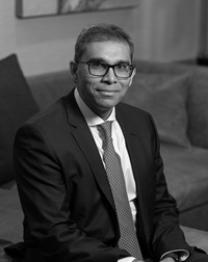
Chris is has more than 30 years' experience in project and export finance across emerging markets and currently serves as Managing Partner and Head of Origination at Acre Impact Capital.
Prior to joining Acre, Chris was Head of Export Finance at Investec Bank based in London where he founded the business in 2010, advising and arranging export & agency finance for project and sovereign infrastructure projects in Africa, growing the business to be a leading arranger on the continent.
Before Investec, Chris was Global Head of Export Finance at ANZ Bank based Singapore. He joined ANZ in London in 1988 before moving to Melbourne, Sydney and finally Singapore in a variety of roles including risk, project finance and structure trade and export finance.
Since 2019 Chris is Co-Chair of the International Chamber of Commerce (ICC) Export Finance Sustainability Working Group and serves on the Loan Markets Association Executive Committee for the ECA Working Party.
Chris is a regular contributor to and presenter at the export finance industry forums including the Berne Union and OECD as well as at industry events including TXF and Global Trade Review.

At the World Bank, Şebnem serves as the Practice Manager for Infrastructure Finance, PPPs & Guarantees. She also oversees the World Bank guarantee program. She and her team collaborate with sector teams, government clients, commercial counterparts, IFC, and MIGA to develop programmatic approaches to mobilize private capital for climate-smart projects through financial structuring, targeted credit enhancements, and technical assistance.
She has over 20 years of experience in structured credit markets (including infrastructure bonds, project finance, bridge loans, mezzanine, and asset-backed securities). Prior to joining the World Bank in 2015, Şebnem was a Managing Director at Nomura and previously at Deutsche Bank. She worked closely with issuers, institutional investors, commercial banks, and rating agencies in designing, underwriting, and placing innovative finance solutions for new borrowers and with new investors. She holds a bachelor’s degree from Boğaziçi University in Istanbul and an MBA from the Wharton School of Business at the University of Pennsylvania.



